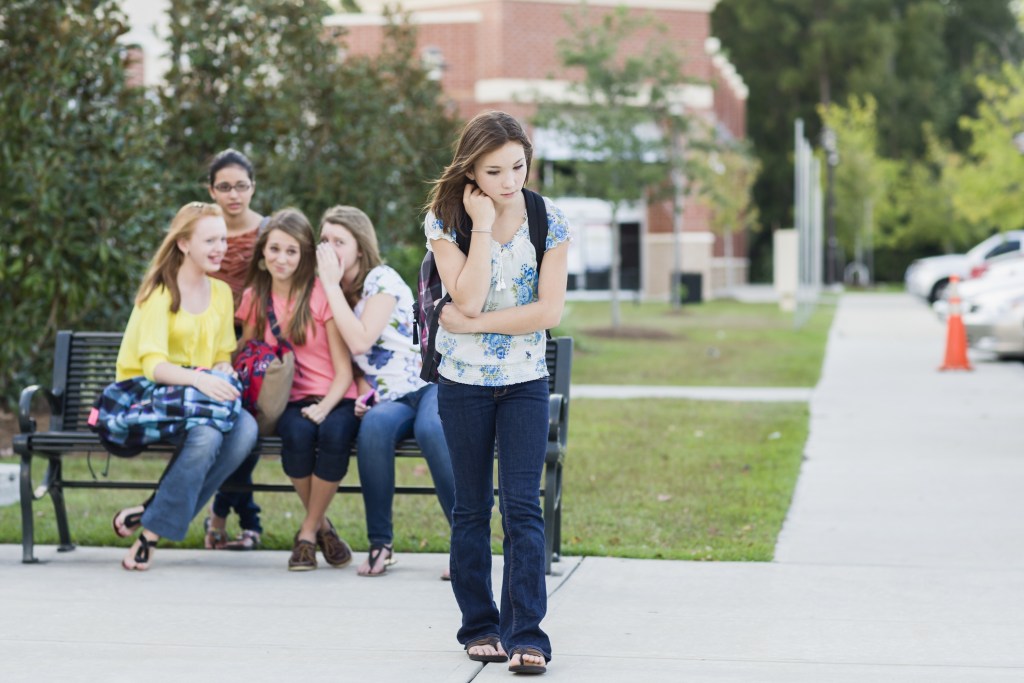If you’ve noticed your once confident and outgoing child has turned into an awkward and shy tween, you’re not alone. The tweenage years — the term for ages 9 to 12 — can be difficult for kids because it’s a time of great physical and emotional change. These changes can definitely require a bit of adjustment on your child’s behalf, and that can take some time.
These changes can also lead to a lot of awkwardness in social situations as your tween discovers new friends and new interests. Unfortunately, this is a time when many tweens become self-conscious as they deal with all these changes. Fortunately, all parents have gone through “awkward stages” of their own, and with a little bit of guidance, they can help their own children navigate the wonderful world of the tween years. So, why are teens so awkward? Let’s find out.

Why are tweens so awkward?
Puberty
One of the main reasons tweens struggle with awkwardness is because they’re basically inhabiting a brand new body. Once a child begins puberty, his or her body and mind can undergo massive changes. All these new raging hormones that occur during puberty can affect everything from physical growth to physical appearance and emotional state. This is a time when many tweens struggle with self-confidence, as they may find themselves comparing their own changes to that of their peers. Whether it’s developing acne, struggling with body, and/or voice changes, puberty really does have a large impact on your tween that can often lead to awkward and self-conscious social situations.
Peer influence
The tween years are also a time when children begin to care more about what others think of them, especially their peers. Tweens may be super conscious of fitting in and caring about what others think of them while also feeling some peer pressure to conform. “They’re starting to realize that there are other opinions and values and viewpoints than their own,” clinical psychologist Dr. Laura Kirmayer told the Child Mind Institute, “and that’s a whole new world that they’re being exposed to and having to learn how to regulate and tolerate.” Dr. Kirmayer adds that this is also a time when tweens are becoming more independent. “Pre-teens are looking more to their peer group for advice and guidance,” she noted. “At the same time, they’re all going through major shifts physically and cognitively, and are feeling the awkwardness and self-consciousness of all that — and that’s where you can run into some of the really tough social dynamics.”
This is also a time where bullying can become an issue, as kids may be left feeling isolated from their peers. The struggle to fit in can really have an impact on a tween and they may begin to feel ostracized from others.

Privacy
You may notice that your tween isn’t just awkward in social situations, but they’ve become almost secretive, too. Ali Hamroff, a licensed psychotherapist who works with adolescents explained to Care.com this behavior is totally normal. “Since tweenhood can be a confusing time, it isn’t uncommon for kids in this age group to not feel as comfortable sharing things with their parents — even if they shared everything in the past,” Hamroff said. “Their bodies are physically changing, and they might start to develop feelings that they never had before. Things like this can be embarrassing, causing them to shut down.”
All these changes can lead to kids feeling awkward and self-conscious in social situations, especially if their physical changes are significant and often the topic of discussion by well-meaning family or friends.
Always changing
It can be hard to be confident and outgoing when you’re going through so much change. “The tween age can be a confusing time for both kids and parents, who are watching their innocent child morph into a mini-teenager,” Hamroff explained. “But it’s important for parents to keep in mind that, at this age, kids are trying to figure out the world for the first time somewhat independently. They don’t necessarily know how to feel or act.” This can often lead to behavior that may seem awkward but is actually pretty normal for their age group.
Gender code
Gender identity, sexual preference, and stereotypical gender roles are things kids become more aware of as they reach the tween years. According to the Child Mind Institute, the “gender code” is the messages kids see either through media, their teachers, and/or other influences that reinforce stereotypical gender roles and gender identity. “The gender code comes in loud and clear at this time, while their bodies are also changing,” Harvard psychologist and school consultant Catherine Steiner-Adair, EdD, explained, “and that brings with it all kinds of issues about what it means to be a boy and a girl that are harmful to both genders.”
What can parents do?
Fortunately, kids will grow out of this awkward phase as they become more comfortable with themselves during the teenage years, but parents can help make that transition a little easier for their tween. Experts suggest parents continue to support and give guidance to their tweens, even if you have to change how you do it. While your child may have wanted to chat openly when they were younger about anything and everything, your tween may need a little more space. Allow them to come to you by letting them know you’re always there to listen if they need to talk. Make time for your tween without the distractions of smartphones or siblings to allow them to share if something is bothering them. Reassure them that the changes they are experiencing are perfectly normal, and encourage them to speak openly and honestly about her feelings.
The tween years can definitely be a time of awkwardness and self-consciousness, and fostering a good relationship with your tween will help them come to you for guidance and support as they grow older and experience the changes that come with the teen years.
Editors' Recommendations
- Why do toddlers hit themselves? The reasons may surprise you
- 5 reasons why a rocking chair for the nursery is an important must-have for both parents and babies
- Is period underwear right for your tween or teen?
- Help! My teenager is vaping! Why this is a high-level parenting emergency
- Looking for a puberty book for your tween that’s gender-inclusive? We’ve got 4




